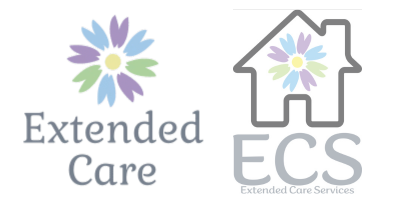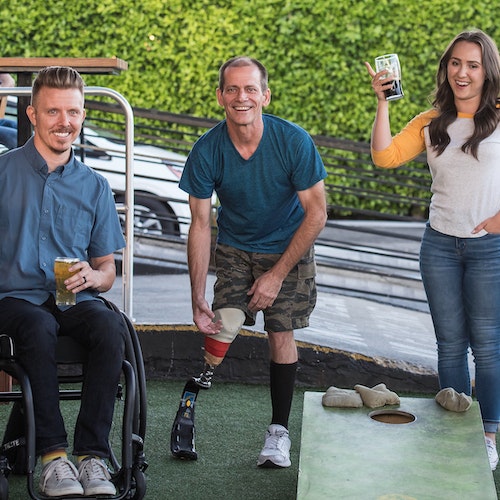Building life skills and promoting independence are essential aspects of enriching the lives of adults with disabilities. Empowering individuals to develop essential skills not only boosts their self-confidence and self-esteem but also enhances their overall quality of life. At Extended Care, we believe in supporting and nurturing these vital abilities through our comprehensive community-based services, such as Residential Care, Pre-Vocational Services, Supported Community Connections, and Non-Medical Transportation.
In this post, we will delve into practical strategies and resources that can effectively help adults with disabilities build life skills and foster increased independence. By tapping into community resources, utilizing technology, and providing supportive environments, we can empower adults with disabilities to achieve growth and self-sufficiency. Moreover, we will explore how engaging in various activities and embracing new experiences can contribute to skill development and self-improvement.
We aim to provide detailed insights and useful information that can help empower adults with disabilities to take charge of their lives, develop essential skills, and lead fulfilling, independent lives.
Accessible Community Resources: Utilizing Local Support
Tapping into community resources is a vital strategy for empowering adults with disabilities and fostering life skills development. By participating in supportive programs and accessing available services, adults with disabilities can strengthen essential skills and enhance their independence. Some accessible community resources include the following:
- Public Libraries: Libraries are treasure troves of information and resources, offering accessible materials, assistive technology, and inclusive programming geared towards individuals with disabilities.
- Community Centers: Local community centers often provide recreational and social opportunities, vocational training programs, and health and wellness initiatives specifically designed to accommodate adults with disabilities.
- Volunteering Opportunities: Volunteering can be an excellent way to develop new skills, gain work experience, and build social connections, all while giving back to the community.
Technology as a Tool: Empowering Independence through Adaptive Devices
The use of technology and adaptive devices can play a significant role in fostering independence and enhancing life skills for adults with disabilities. Assistive technology can provide vital support in various domains, such as communication, mobility, and daily living skills:
- Communication Devices: Augmentative and Alternative Communication (AAC) devices, such as speech-generating devices or communication boards, can enable adults with disabilities to express themselves and interact with others effectively.
- Mobility Devices: Innovations in mobility technology, such as power wheelchairs with customizable controls, can empower individuals with disabilities to navigate their environments independently.
- Smart Home Devices: Smart home devices, such as voice assistants, appliance automation, and environmental controls, can promote greater independence in everyday tasks and provide assistance in managing daily routines.
Supported Community Connections: Fostering Social Interactions and Skills Development
Participating in community events and group activities can help adults with disabilities build life skills, connect with others, and enhance their overall well-being. Supported community connections, such as those provided by Extended Care, offer tailored support and optimal environments for growth and inclusion:
- Group Activities: Engaging in team sports, social clubs, or support groups can create opportunities for adults with disabilities to develop social skills, problem-solving abilities, and self-confidence.
- Educational Workshops: Attending workshops and classes, such as cooking or budgeting courses, can empower individuals with disabilities to master essential life skills and gain independence.
- Community Involvement: Actively participating in local events, such as neighborhood gatherings, festivals, or charity functions, can foster a sense of community belonging and offer skill-building opportunities.
Pre-Vocational Training and Employment Support: Nurturing Career Goals and Workplace Skills
Pre-vocational training and employment support services play a crucial role in enabling adults with disabilities to pursue their career aspirations and develop essential workplace skills confidently. These services can involve various strategies and supports, such as:
- Job Skills Training: Pre-vocational training programs, like those offered by Extended Care, can provide hands-on job training and skill enhancement, such as preparing for interviews, mastering job-specific tasks, and improving time management skills.
- Job Coaching and Placement: Job coaches can help adults with disabilities navigate the employment process, from seeking job opportunities to providing ongoing support once employed.
- Workplace Accommodations: Understanding and advocating for workplace accommodations can ensure adults with disabilities receive the necessary support to perform their job duties effectively and enhance their independence in the workplace.
Embracing New Experiences: Encouraging Personal Growth and Skill Development
Embracing new experiences can be a powerful way for adults with disabilities to develop their life skills and gain confidence in their abilities. Trying new things can help individuals build resilience, problem-solving skills, and creativity. Some ways to embrace new experiences include the following:
- Travel and Adventure: Traveling, going on nature walks, or participating in adventure activities can offer opportunities for adults with disabilities to develop their confidence, problem-solving skills, and decision-making abilities.
- Art and Creativity: Engaging in creative activities, such as painting, drawing, music, or writing, can help adults with disabilities express themselves, develop new skills, and build self-confidence.
- Cultural Events and Festivals: Participating in cultural events and festivals can expose adults with disabilities to new experiences, broaden their horizons, and foster a sense of community and belonging.
By encouraging individuals with disabilities to embrace new experiences, we can help them develop essential life skills, gain confidence, and increase their overall quality of life.
Conclusion
Supporting and nurturing life skills and independence are essential components of empowering adults with disabilities to lead fulfilling, independent lives. By utilizing accessible community resources, employing technology as a tool, fostering supported community connections, and engaging in pre-vocational training and employment support services, individuals with disabilities can unlock their full potential and achieve personal growth.
At Extended Care, we are dedicated to providing comprehensive disability services tailored to unique needs. By fostering independence and enabling skill development through our Residential Care, Pre-Vocational Services, Supported Community Connections, and Non-Medical Transportation offerings, we strive to make a meaningful difference in the lives of those we serve. Together, we can create a supportive and enabling environment that empowers adults with disabilities to thrive and flourish.

